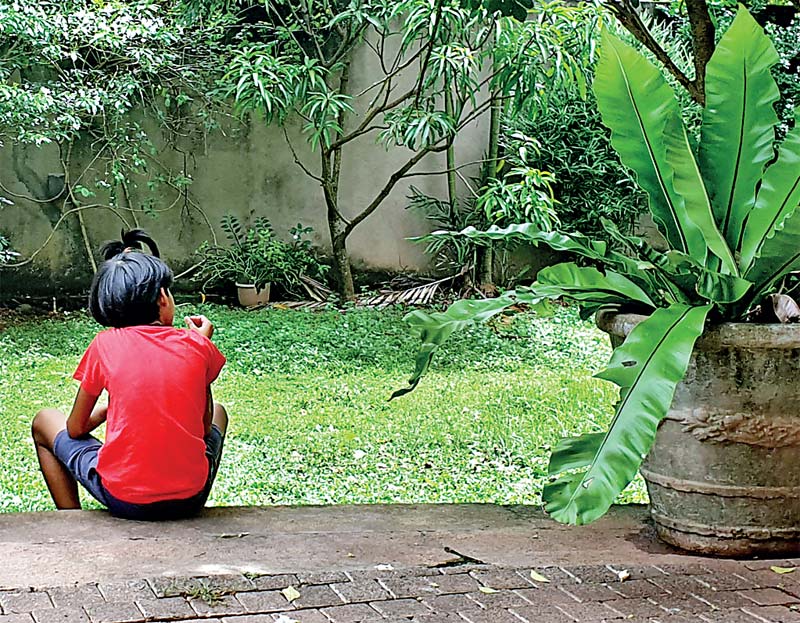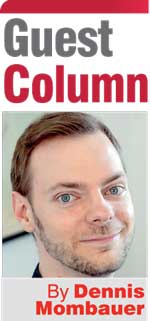Friday Feb 20, 2026
Friday Feb 20, 2026
Saturday, 9 October 2021 00:07 - - {{hitsCtrl.values.hits}}

Currently, autism screening is not a mandatory part of primary and childhood healthcare in Sri Lanka. If autism screening is integrated into routine childhood healthcare, it can enhance the chances of early diagnosis and therefore early interventions

Autism Spectrum Disorder (ASD) is a neurodevelopmental disorder that manifests in different ways. This can include issues with social interaction and communication, repetitive or restricted behavioural patterns, being nonverbal, and heightened sensitivity to sounds or crowded environment. While the exact causes of ASD are still not known to researchers, cases across the autism spectrum are well documented, with signs typically starting to appear during early childhood.
There is only limited data on the prevalence and distribution of ASD among Sri Lanka’s population. This issue is compounded by limited awareness and understanding of autism, which often prevents proper diagnosis or treatment for autistic children as parents and families do not seek or do not have access to professional help and support systems.
With ASD, the earlier the diagnosis, the higher the potential for effective interventions. At two or three years of age, children’s brains are still forming and can change more easily. To help autistic children acquire communication or social skills, learn to play, and fulfil their individual needs, they can be supported through occupational therapy, speech therapy, capacity-building of parents, and other interventions, which can be very effective in the long term.
Challenges of early diagnosis
In most cases, ASD can be reliably diagnosed as children reach two years of age, with many parents reporting concerns even before that. However, while parents may notice “atypical” behaviour or development patterns early on, it often takes years until children are formally diagnosed, if they are diagnosed at all.
One reason for this is that cases of ASD, as the name indicates, fall onto a wide spectrum, and that individuals can present very different behaviours and symptoms. Typical signs of ASD include avoidance of eye contact, delayed speech development, seeking solitude, resistance to changes in routines, or high sensitivity to noises – but none of these are definite or exclusive indicators for autism.
Parents may not know what the behaviours of their children signify, and they might be hesitant to seek professional help. In addition, there is also a lack of autism awareness and expertise among many medical practitioners, which can make it hard for parents to get a diagnosis even if they take their child to a doctor.
Opportunities for early action
Currently, autism screening is not a mandatory part of primary and childhood healthcare in Sri Lanka. If autism screening is integrated into routine childhood healthcare, it can enhance the chances of early diagnosis and therefore early interventions. A system that flags behavioural indicators for ASD could then connect families to doctors that rely on standardised diagnostic instruments, such as interviews with parents and standardised observations of the child. If a child is diagnosed, parents could be provided with guidance and training as well as opportunities for therapy or other interventions.
If doctors receive enhanced training on ASD and routine screening takes place, research suggests that it is possible to diagnose children as early as 12-18 months of age, sometimes even sooner. If interventions are started at such an early age, they can reduce developmental delays or move children toward the lower end of the autism spectrum as they get older. Early interventions can make a difference across the course of life of autistic children and adults, and there are many ways to build a supportive environment for them to grow up in. Creating awareness and building capacities on ASD within the medical system can help to give a better chance to every child as early as possible.
(The writer works as Director – Research & Knowledge Management at SLYCAN Trust, a non-profit think tank based in Sri Lanka. He holds a master’s degree in Education from the University of Cologne, Germany, and is a parent of an autistic child. Besides autism and education, his work also focuses on climate change and related issues, and he is a regular writer to several international and local media outlets.)